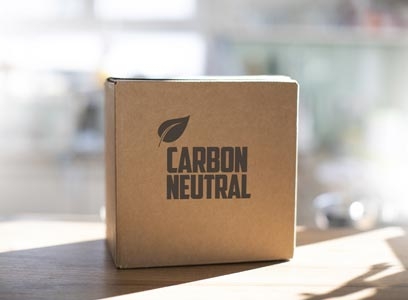Posts worldwide, through the IPC SMMS Programme (1), commit to have their yearly collective CO2 emissions (2) by 2030 compared to 2019 levels. To meet this goal, posts will focus mainly on emissions generated by buildings and transportation, which respectively account for 45 and 55% of their total emissions. By 2030, posts collectively aim to have 50% of their fleet as alternative fuel vehicles (against 22% in 2020), of which 25% of electric vehicles (against 16% in 2020) and 75% of their energy consumed, generated from renewable sources (against 33% in 2020).
In line with the UN Sustainability Development goals, postal commitment also goes beyond CO2 emissions. By 2030, they collectively commit to having 50% of reusable, recyclable, or compostable packaging sold. As part of their engagement, posts are committed to improve their Sustainability Management Proficiency Group Score by 38 points to 90 points in 2030 (3) with the results third party validated by PwC.
Sustainability Management Proficiency covers management initiatives based on four core management pillars: Strategy and Policy, Embedding, Measurement and Evaluation, and Reporting and Disclosure. Posts already made strong progress towards the target in 2020, increasing their group score by nine points compared to 2019, to 61% points.
Today, posts have achieved a reduction of their joint yearly emissions (4) by 34% (5), compared to 2008. In 2014, posts achieved their 20% reduction target, initially set for 2020. Since 2013, posts have collectively adopted the science-based target of reducing total emissions linked to packet and parcel delivery by 20% per item (6). Thanks to their joint efforts to reduce the carbon footprint of delivery, posts are 16% away from their 2025 objective.
Posts have been pioneers in implementing sustainability policies and actions, in their operations and in meeting the expectations of their stakeholders regarding sustainability. Global postal operators were one of the first sectors to launch their own sector system to monitor and measure their carbon footprint and to establish joint targets to reduce their emissions.


